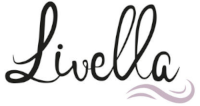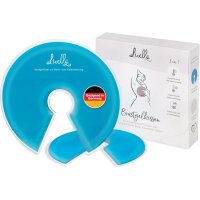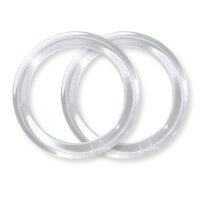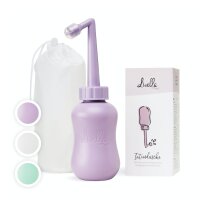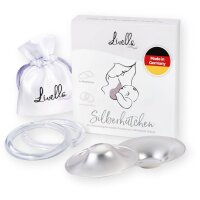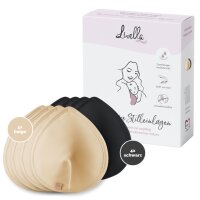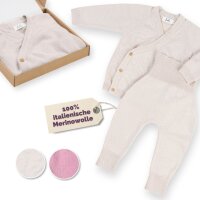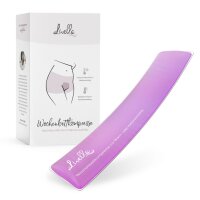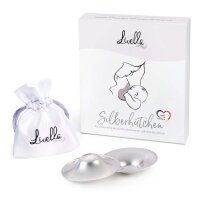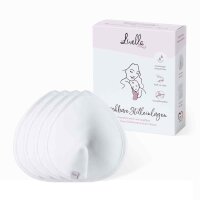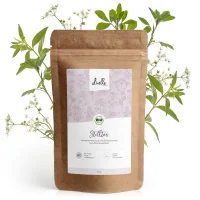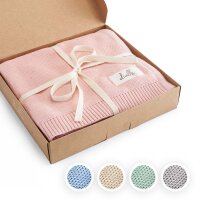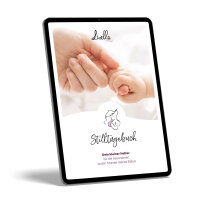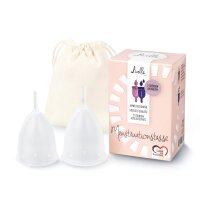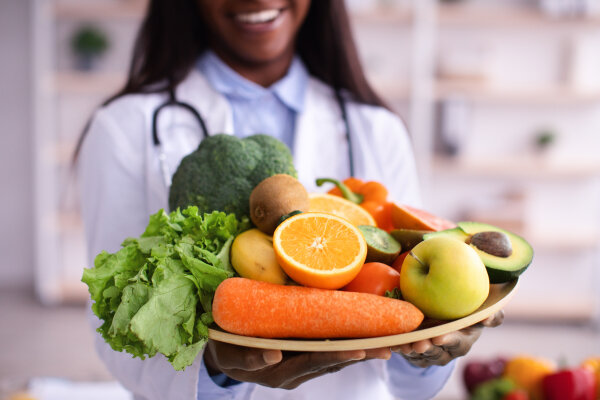During breastfeeding, the mother's body has a higher demand for energy, vitamins and minerals. Research shows that, compared to other women, breastfeeding mums need around 500 kcal more per day. So there’s no need to panic if you get hungry faster than usual while breastfeeding.
However, mindless eating is not the way to go during breastfeeding. The strict food restrictions that need to be observed during pregnancy may not apply to breastfeeding women, but the need to eat a balanced and healthy diet continues all the way through breastfeeding. Not only because your body needs to be well-nourished to make milk, but also because a healthy diet ultimately supports your baby’s healthy development.
So, what are the best foods to eat while breastfeeding? And what not to eat while breastfeeding? In short, what does a healthy breastfeeding diet look like?
Table of Contents
Does breastfeeding diet affect milk supply and quality?
Breastfeeding diet: What to eat while breastfeeding?
Diet for breastfeeding mothers: What to avoid?
Which breastfeeding diet to lose weight?
Diet for breastfeeding mothers: Are nutritional supplements really necessary?
Conclusion: Eating a healthy breastfeeding diet is essential
Does breastfeeding diet affect milk supply and quality?
Breastfeeding mums often wonder whether their diet has an impact on milk supply and quality. There definitely is a correlation between what you eat and how nutritious your breast milk is. So, if you eat a healthy, balanced diet, this will be reflected in your breast milk.
However, you should know that your diet primarily influences the concentration of certain micronutrients in your breast milk, while the levels of macronutrients such as fat and protein remain largely unaffected by your daily food intake. In other words, what you eat has no effect on the primary composition of your milk, but it determines how rich your milk is in certain minerals and vitamins.
The minerals and vitamins whose concentration in mother’s milk depends on your breastfeeding diet include zinc, iron and selenium as well as vitamins A, B1, B2, B6, B 12, D and K. That vitamin B12 levels in breast milk are affected by the mother’s diet is an important fact to remember for breastfeeding mums that are vegetarian or vegan.
In general, you should keep in mind that your body needs more calcium, vitamin D, iron, iodine, vitamin B and protein during breastfeeding. Your energy demand will also go up, since your body burns additional calories while producing milk.

Breastfeeding diet: What to eat while breastfeeding?
Now that we know that the mother’s breastfeeding diet determines how rich her milk is in certain vitamins and minerals, the next question is what foods to eat while breastfeeding. First things first, there are no breastfeeding foods that have a special impact on the composition of mother’s milk. Instead, it’s all about eating a balanced diet that includes a variety of healthy, wholesome foods.
A healthy diet for breastfeeding mothers includes:
- Dairy foods
- Wholemeal products
- Fruit and vegetables
- Lean meat
- Fish
- Plenty of fluids
Dairy foods
Dairy foods such as milk, yoghurt and cheese should definitely be included in your breastfeeding diet. For one thing, they contain valuable protein which is needed for milk production. For another thing, they are essential sources of calcium, which is also important for breastfeeding mums. Furthermore, dairy products play an important role in iodine supply.
Wholemeal products
Wholemeal products are another component of a healthy diet for breastfeeding mothers. This includes wholemeal bread, pasta and brown rice. The reason why wholemeal foods are important is that they are high in nutrients and therefore carry lots of energy—energy your body needs to make milk. Plus, they are high in fibre and will keep you full for longer.
Fruit and vegetables
Eating plenty of fresh fruit and vegetables is essential. Breastfeeding mothers should stick to the well-known five-per-day rule. There are many different fruits and vegetables you can include in your breastfeeding diet. Carrots, broccoli, fennel, spinach, apples, bananas, grapes, apricots and mangoes are just some examples. So, keep it varied.
If you notice your baby having a sore bottom or being gassy, you should take a closer look at the fruit and veg you consume. A sore bottom can be due to citrus fruit or other fruits that are high in acid. Certain vegetables like broccoli or cabbage, on the other hand, can cause gas in babies.
Lean meat
Meat and meat products are good sources of protein. Still, you don’t have to eat meat every day just because you’re breastfeeding. Two to three servings of meat per week is typically enough. It’s preferable to choose lean meat and chicken for your breastfeeding diet.
Mothers following a vegan or vegetarian diet should ask a doctor or nutritionist for advice to make sure they are getting all the essential nutrients their baby needs for a healthy development, especially with regard to their vitamin B12 intake.
Fish
Many publications recommend that women should also incorporate fish into their breastfeeding diet, since fish is an important source of protein and iodine. Oily fish such as herring, mackerel, salmon and sardines further provide plenty of healthy fats. However, the weekly intake should be limited to two servings per week, one portion being around 140g.
Another aspect you should take into consideration is the fact that most sea fish contains mercury which can be harmful to your baby’s development when consumed in large quantities. That’s why you should avoid sea fish that are known for being high in mercury, such as shark or swordfish.
Plenty of fluids
Drinking plenty of fluids is yet another important part of a healthy breastfeeding diet. Since breastfeeding can make you thirsty, it’s a good idea to always have a glass of water within reach during feedings. There is no strict rule as to how much you should drink while breastfeeding, but you should choose your beverages with care.
Mineral water, tap water, milk, unsweetened infusions and herbal teas are all good choices to quench your thirst. If you want to increase your milk supply, you can also drink 2 - 3 cups of breastfeeding tea per day. Sugary, caffeinated and alcoholic drinks should be consumed with moderation.
Diet for breastfeeding mothers: What to avoid?
You’ll probably still remember the long list of foods you couldn’t eat during pregnancy. Well, good news is that the list of foods to avoid while breastfeeding is significantly shorter.
Although there are some publications out there which recommend that mothers should eliminate certain fruits and vegetables from their breastfeeding diets because they could lead to babies becoming gassy or cause digestive problems, there is no need to exclude any of these foods right from the beginning.
In the end, there are only three types of food and drinks you should be careful with while breastfeeding, and these are:
- Alcohol
- Caffeine
- Spicy foods
The reason for this is simple. Minerals, vitamins and other important nutrients make it into your breast milk through your daily food intake, which means that the same goes for harmful substances.
Alcohol
Alcohol and smoking are strict no-goes during pregnancy. And unless you decide to bottle feed your newborn, the restriction continues all the way through breastfeeding. Alcohol consumption can have a direct negative impact on your baby. For instance, it can cause sleep disturbances and growth retardation.
So, if you feel like having a drink, limit your alcohol intake to one to two glasses, and give it at least two hours before you breastfeed again.
Caffeine
As delicious as coffee is in the morning and afternoon, it's not exactly part of a healthy diet for breastfeeding mothers. That’s because it's not just you who gets the caffeine boost, but your baby too. Babies respond differently to their mothers consuming caffeine, but it’s generally recognized that too much caffeine can cause restlessness and sleep problems in breastfed babies.
But how much caffeine is too much? The general recommendation is that breastfeeding mothers shouldn’t have more than two cups of coffee per day. Keep in mind though that coffee is not the only drink that has caffeine in it. Black tea, energy drinks and many sports drinks also contain caffeine.
Spicy foods
Opinions differ when it comes to the question of whether or not breastfeeding mothers should eat hot, spicy foods. Similar to acid fruits and vegetables, hot spices can disturb your baby’s digestion and lead to an uncomfortably sore bottom. Not all babies are affected when their mother consumes hot spices, but it’s best to eat only small quantities in the beginning to see if it has an effect on your baby.
Which breastfeeding diet to lose weight?
Many mothers want to lose the extra pounds they gained during pregnancy as quickly as possible. While the desire to get back into shape is completely understandable, going on a strict diet when breastfeeding is not a good idea. Think about it this way: Breastfeeding is a strenuous task for your body for which you need additional energy. Not to forget that drastically reducing your food intake can lead to low milk supply.
So, extreme dieting while breastfeeding is off the menu. However, experts say that moderate weight loss of up to 1.1 lbs or even 1.5 lbs per week is acceptable, meaning that it shouldn’t affect your milk supply. Since breastfeeding burns extra calories, eating a healthy diet and getting some exercise should be enough to achieve this weekly weight loss without any additional restrictions.
Diet for breastfeeding mothers: Are nutritional supplements really necessary?
As we’ve seen earlier, the composition of breast milk is not affected by the mother’s nutrition when it comes to macronutrients (i. e. carbohydrates, proteins and fats). Where the mother’s nutrition comes into play is with regard to certain vitamins and micronutrients that need to be absorbed in sufficient quantities through a healthy breastfeeding diet.
The need for certain vitamins and minerals increases during breastfeeding, which is why there is a growing number of vitamin supplements marketed especially for breastfeeding mothers. But in many cases, taking nutritional supplements isn’t necessary. Eating a varied breastfeeding diet is usually enough to cover the nutritional needs of both mother and baby. Another argument against taking supplements is that they often contain excessive quantities of certain vitamins or minerals and can therefore lead to an overdose.
However, there are a couple of exceptions, one of them being B12 supplements. If the intake of vitamin B12 is not covered by the mother’s breastfeeding diet (for example because she is vegan or vegetarian), it’s recommended to take a supplement to avoid vitamin B12 deficiency in the newborn—after consulting a doctor or nutritionist, that is.
Another vitamin for which mothers might have to take supplement during breastfeeding is vitamin D. Vitamin D is important for the absorption of calcium in the body as well as for bone health, and its concentration in breast milk depends on the mother’s vitamin D supply. Before taking any supplements, however, you should talk to a doctor and have your vitamin-D levels checked. In any case, it’s recommended by medical bodies that breastfed babies receive a vitamin D supplement in the first year of life.
Experts further recommend that pregnant or breastfeeding women take a daily supplement containing 150 µg of iodine—again, check with a doctor if you really need a supplement. That's because during pregnancy and breastfeeding, your body needs higher amounts of iodine than normal. And since it’s difficult to cover this increased need through your breastfeeding diet, taking iodine supplements is often the only way to ensure your child has a good iodine status.
Read more about nutritional supplements for breastfeeding mothers in our related blog post.
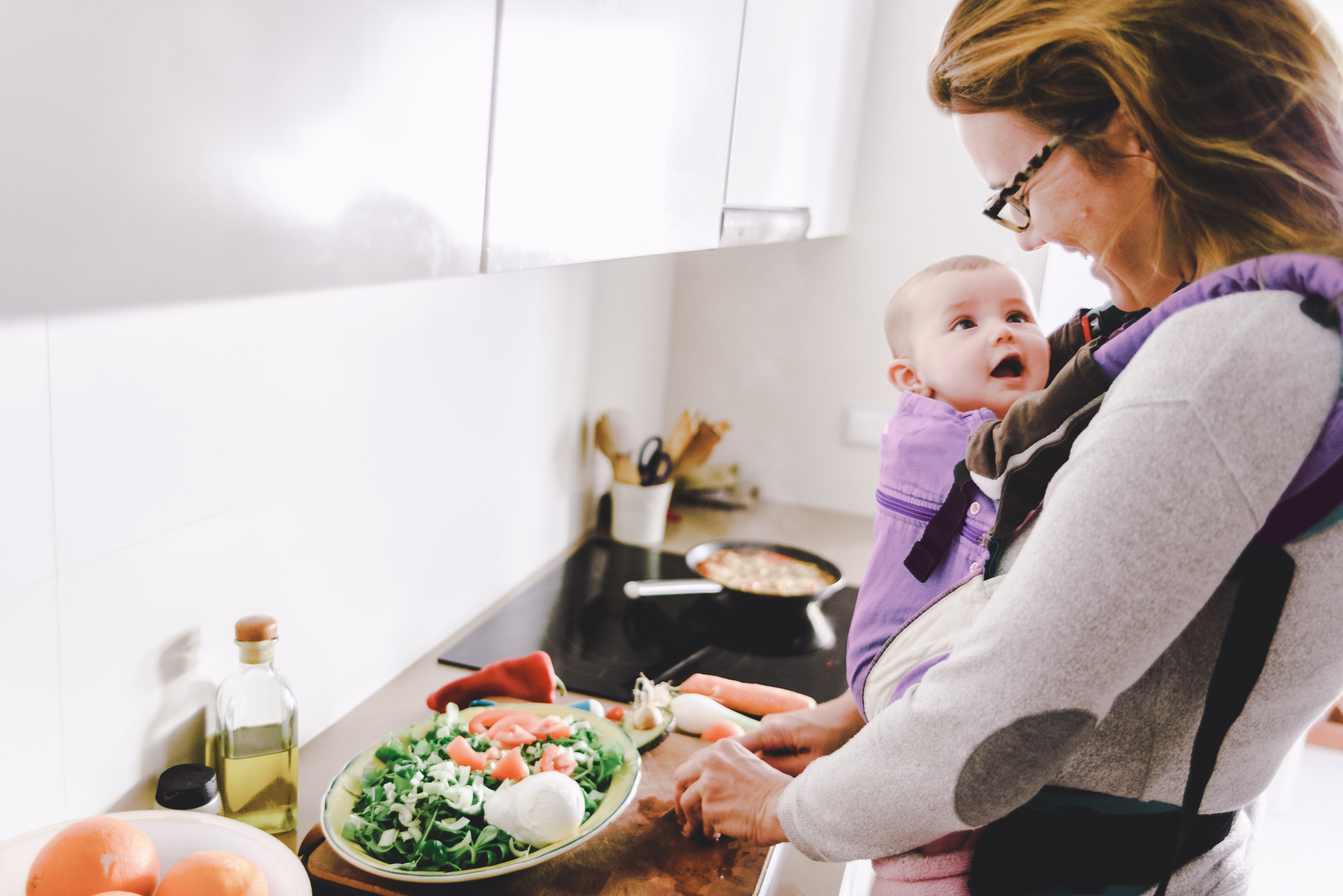
Conclusion: Eating a healthy breastfeeding diet is essential
There are a few things to keep in mind when it comes to healthy eating while breastfeeding. A healthy diet for breastfeeding mothers basically follows the same recommendations and principles that govern healthy eating in general—with some additions. Here’s what to remember:
- A healthy breastfeeding diet is a varied mix of fruit, vegetables, dairy and wholemeal products, lean meat and fish (the latter only once or twice a week).
- There are no foods that are completely taboo during breastfeeding, not even the beloved morning coffee. As long as they are consumed with moderation, coffee and alcohol are allowed—just respect a two to three hour waiting period before you breastfeed again.
- Extreme diets and other forms of food restriction are generally not recommended during breastfeeding. With a healthy diet and some exercise, the extra weight you gained during pregnancy will disappear without you putting an additional strain on your body.
- Mixed nutritional supplements that are marketed for breastfeeding women often contain excessive quantities of certain vitamins or minerals and are therefore not recommended. Depending on your personal situation, supplementing your intake of vitamin B12, vitamin D and iodine might be necessary. But this should be discussed with a doctor.
References
- Nutritional supplements and mother’s milk composition: a systematic review of interventional studies | International Breastfeeding Journal | Full Text (biomedcentral.com)
- Sufficient intake of iodine and folic acid are important for pregnant and breastfeeding women - BfR (bund.de)
- Breastfeeding and diet - NHS (www.nhs.uk)
- Breastfeeding diet: Nutrition and foods to avoid (medicalnewstoday.com)
- Drinking Alcohol and Breastfeeding - La Leche League International (llli.org)
- Caffeine - La Leche League International (llli.org)
- Breastfeeding nutrition: Tips for moms - Mayo Clinic
- Breastfeeding Diet 101: What to Eat While Breastfeeding (healthline.com)
- Breastfeeding and Nutrition - ABM
- Vitamins and Other Nutritional Supplements - La Leche League International (llli.org)
- Maternal vitamin D supplementation to improve the vitamin D status of breastfed infants: a randomized control trial - PMC (nih.gov)
- Vitamin D, Your Baby, and You - La Leche League International (llli.org)
- Iodine | Breastfeeding | CDC
- Energy and protein requirements during lactation - PubMed (nih.gov)
